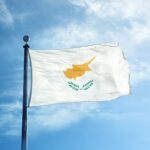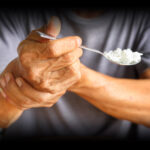National African-American Women’s Fitness Month takes place every April to help educate African-American women on the importance of being active, keeping fit, and living healthy lives. The goal of the celebration is to raise awareness about what can be done to prevent African-American women from experiencing major health issues such as heart disease, strokes, or cancer. It promotes African-American women to take part in physical activities to mitigate any such issues in the future which could be detrimental not just to their health, but to their daily lives as well.
History of National African-American Women's Fitness Month
According to the American Heart Association, half of all African-American women in the United States have some form of cardiovascular disease, and they are more likely to die from heart-related problems than women of other ethnicities such as Caucasians. The main risk factors for cardiovascular disease in African-American women include high blood pressure, obesity, diabetes, and smoking, stemming mainly from physical inactivity.
Another factor that contributes to the declining health of African-American women includes chronic stress caused mainly as a result of sexism and discrimination that takes place both at home and at work. There is also the cultural expectation that African-American women must mainly remain at home to raise their children, hence the inactivity. These factors increase the rate of hypertension in African-American women, making them more prone to obesity and heart problems. Furthermore, many African-American households tend to gravitate to cheaper, less healthy foods due to their economic conditions, thus worsening their health over time.
While issues such as economic conditions must be tackled and addressed on a higher level, personal measures have to be taken to reduce risks to one’s health and well-being. Through National African-American Women’s Fitness Month, it is hoped that the important message of keeping fit will be able to help transform the health of African-American women nationwide.
National African-American Women's Fitness Month timeline
Professional high-jumper Coachman becomes the first African-American woman to win a gold medal at the 1948 Olympics in London.
Personal training development specialist Madison starts the first National African-American Women's Fitness Month.
African-American former First Lady Michelle Obama initiates the national Let's Move! program to encourage children to live healthier lifestyles and prevent obesity.
Los Angeles-based health activists Vanessa Garrison and Tanya Morgan Dixon initiate the long-running GirlTrek program, encouraging African-American women to walk at least 30 minutes a day.
National African-American Women's Fitness Month FAQs
How does poverty affect physical activity?
In the United States, minorities tend to be associated with a lack of activity due to their economic conditions. Poor health among low-income households tends to inhibit exercise, causing many to understandably prioritize other pressing issues.
What are the major barriers to physical activity?
Major barriers to physical activity include the lack of time, social influence, energy, will, skill, and resources. There are also concerns about how injuries can have future effects on one’s life. For those without the means, overcoming these barriers is a greater challenge that must be addressed on a larger, social level.
What percentage of Black people exercise?
While the exact numbers cannot be precisely determined, a 2018 study by A.I.M.S. Public Health indicated that 27% to 52% of African-American adults engage in regular physical activity.
How to Observe National African-American Women's Fitness Month
Participate in exercise
Participating in exercise does not necessarily mean one has to have the equipment to do so. For one, simply keeping one's legs active by walking, taking part in an exercise video, or using the stairs is enough to help lower blood pressure and maintain fitness. The key is to do it frequently.
Visit the gym
For African-American women who can afford to go to a fitness center, make it a daily habit. With a large amount of equipment at your disposal, use them effectively to keep and maintain a healthy body.
Spread the word
Raise awareness by posting on social media platforms regarding the importance of exercise and keeping fit. Use the day's official #NationalAfricanAmericanWomensFitnessMonth and #NAAWFM hashtags to spread the word to a greater audience.
5 Exercises That Help Reduce Heart Problems
Aerobics
Aerobic exercise such as running, as well as cardio workouts and pushups, help improve blood circulation, reduce the risk of diabetes and increase your overall fitness.
Strength resistance exercises
Resistance training such as weight work and pushups can help reduce fat and foster a leaner muscle mass.
Flexibility and balance exercises
Stretching exercises help improve flexibility, prevent joint pain and cramping, and lower blood pressure.
Full-body sports
Sports such as swimming, cycling, and tennis fully utilize your arms and legs, keeping a healthy blood flow, and can help increase one's stamina.
Balance exercises
Whether through yoga, pilates, or tai chi, balance exercises help strengthen leg muscles as well as improve your balance in the long run.
Why National African-American Women's Fitness Month is Important
It helps mothers set good examples
By participating in regular fitness regiments, African-American women are also setting a good example for their children to follow. It is never too early to start thinking about health and by maintaining one's health in their earlier years, they lessen the chances of health risks in the future.
It helps boost confidence and reduce stress levels
Aside from being healthy, getting in shape can do wonders for one's confidence. Doing so can help reduce stress and boost one's willingness to improve their health further. National African-American Women's Fitness Month's main goal is to promote the benefits of exercise in general, so long as one keeps their health in check.
It compels you to do things at your own pace
It's vital to remember that there is more to it than just having the ideal figure, even though the media frequently promotes it to African-American women. While it may improve one's motivation to stay active, comparing oneself to model-perfect celebrity figures might, instead, raise stress levels, negating any fitness benefits. National African-American Women's Fitness Month emphasizes maintaining health above achieving certain benchmarks. It honors moving forward at one's own pace to live a healthier life.
National African-American Women's Fitness Month dates
| Year | Date | Day |
|---|---|---|
| 2026 | April 1 | Wednesday |
| 2027 | April 1 | Thursday |
| 2028 | April 1 | Saturday |
| 2029 | April 1 | Sunday |
| 2030 | April 1 | Monday |



















































































































































